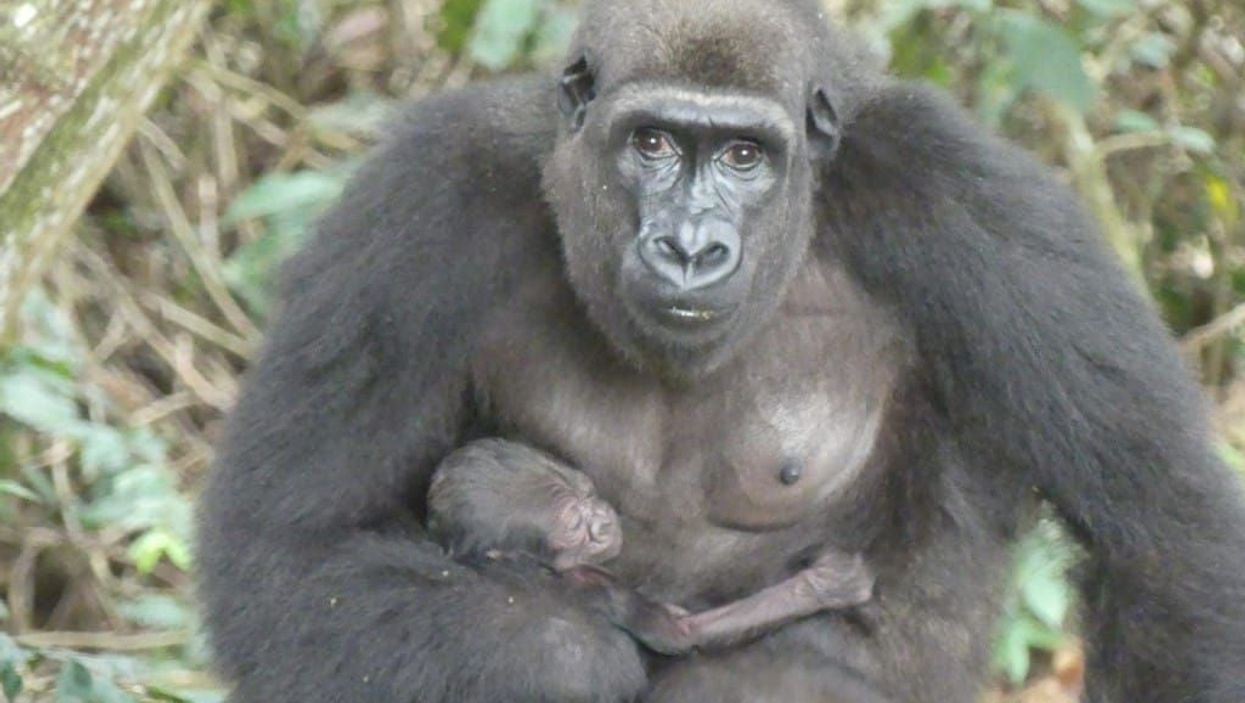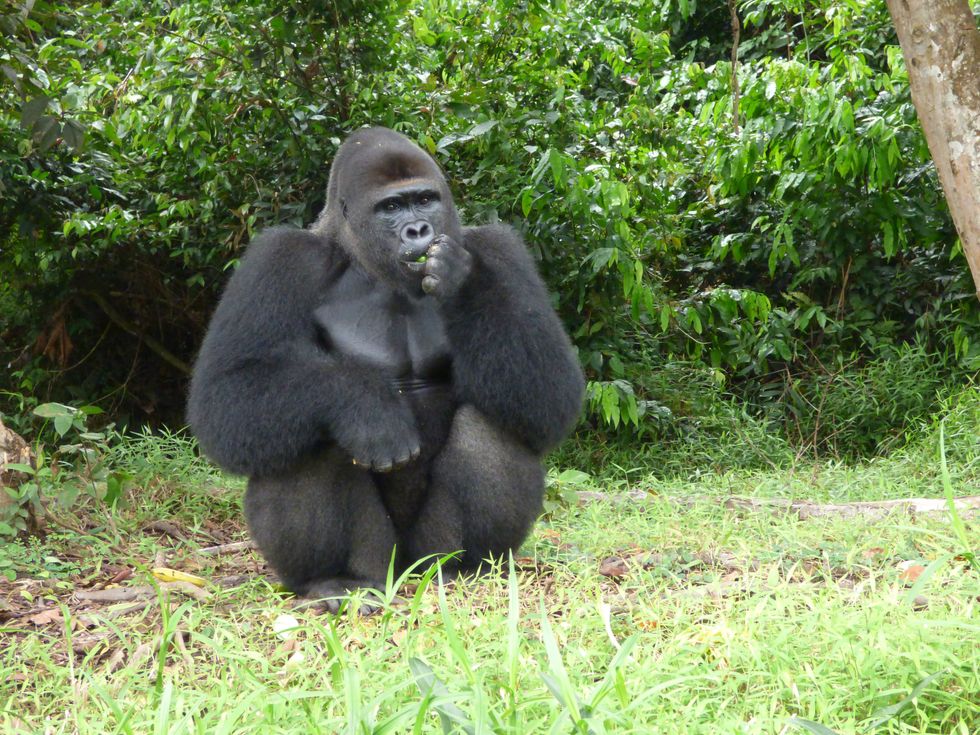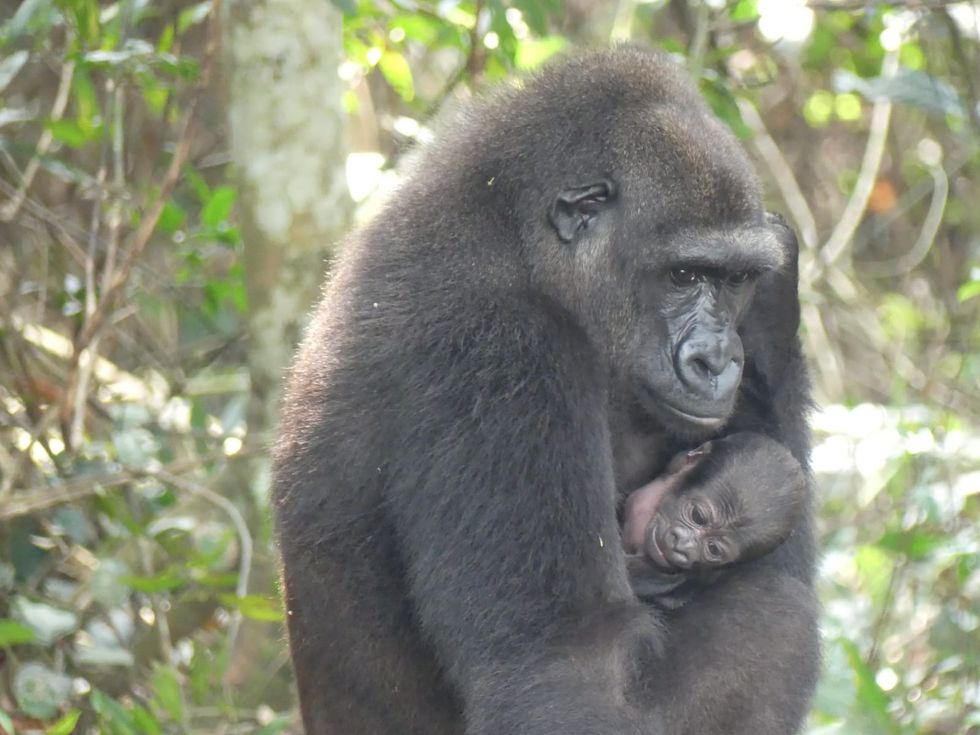
Two gorillas are thought to have made history after becoming the first captive-born couple to give birth in the wild.
The baby western lowland gorilla was born to 13-year-old mother Mayombe and 15-year-old father Djongo on Monday in the Bateke Plateau National Park in Gabon
Djongo was born at Port Lympne Reserve in Kent and released in Gabon in 2013.
He returned to Gabon with his father Djala, a wild-born orphan who lost his family to poachers and was later abused by his captors.
Djala was rescued by conservation charity the Aspinall Foundation in 1986, and the two males were released into the wild as part of a reintroduction project supported by the foundation.
Mayombe was born at ZooParc de Beauval in Saint-Aignan, France and was released in Gabon in 2019 through a collaboration between the Aspinall Foundation and the zoo.
The new baby is being monitored by rangers, with the new family regularly caught on camera traps.
Mayombe and Djongo are believed to be the first gorilla breeding pair where both parents were born in captivity to mate successfully in the wild, the Aspinall Foundation said.
Damian Aspinall, chairman, said: “This is a pivotal moment for wildlife conservation and a hugely emotional day for our entire team.
“This birth symbolises the foundation of our entire Gorilla Protection Project.
“Thirty-five years ago, our work saved Djongo’s father and allowed that family lineage to continue after devastating loss.”
He continued: “To now see Djongo’s offspring born in freedom, the next generation of this critically endangered species given a full life in the wild, free from human persecution, is a powerful image in a project that has come full circle.”
Delphine Delord, associate director of communications at ZooParc de Beauval, said: “The team at Beauval are incredibly excited with this wonderful news.
“This baby gorilla, offspring of our female Mayombe born in Beauval, represents a huge step for global conservation, of which we are immensely proud.
“Today, we celebrate the fact that hope is possible for a better future for this critically endangered species, thanks to the work being done both ex-situ and in-situ.”















